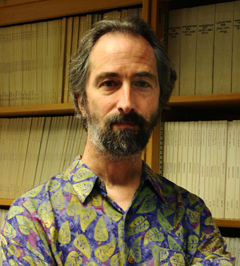Grant studies bacterial mutation
Professor Patricia Foster and Distinguished Professor Michael Lynch, along with Haixu Tang, associate professor of informatics and computing and director of bioinformatics for the Center for Genomics and Bioinformatics at IU Bloomington, and Steven Finkel, associate professor at the University of Southern California, have been awarded roughly $6.25 million from the U.S. Department of Defense to study the constraints on mutation in microorganisms. This award is one of several grants that were given by the Department of Defense to 32 universities as part of its Multidisciplinary University Research Initiative program, which is focused on multidisciplinary research efforts that intersect more than one traditional science discipline to address critical issues of concern to the nation.
Using high-throughput techniques to collect large amounts of data and bioinformatics to make sense of the data, the researchers plan to study how mutations accumulate in a species, determine whether mutations are more likely to occur in predictable areas, how the environment influences mutation rates, and evaluate the genome-wide molecular spectrum and rate of spontaneous mutations in Escherichia coli (E. coli) and at least 25 other bacterial species. The findings from this research could remarkably improve our understanding of microbial evolution. According to Foster, “The practical application of this research, as far as the Department of Defense is concerned, is forensic. They are interested in defining mutational signatures that may help to identify the source of a bacterium, be it a naturally occurring disease organism or a bioterrorism agent.”



 The College of Arts
The College of Arts